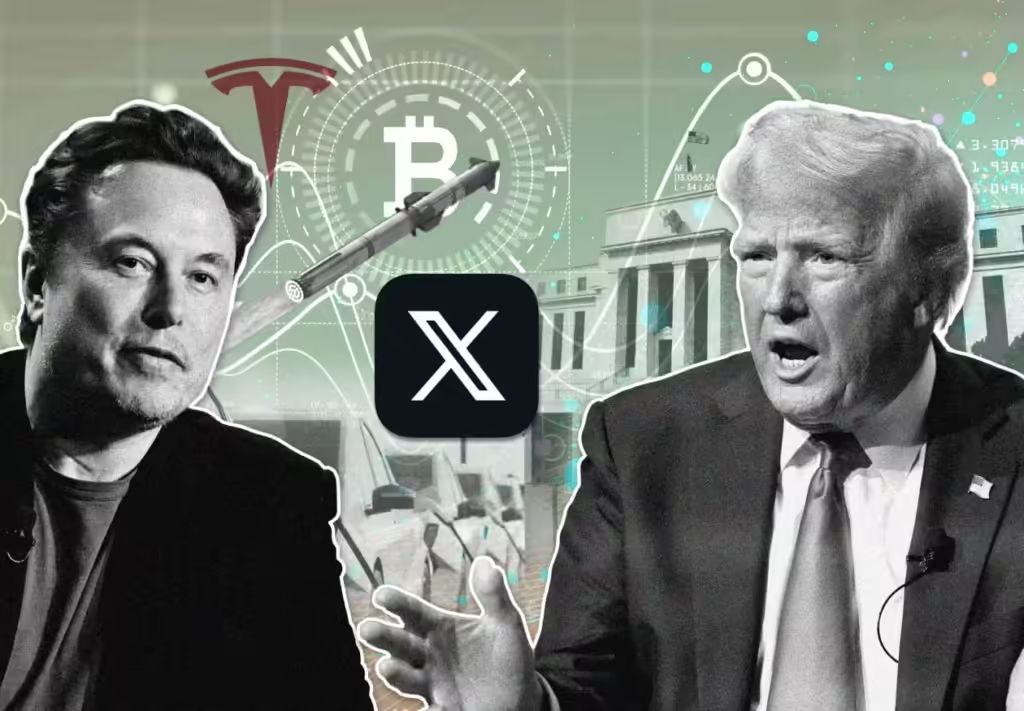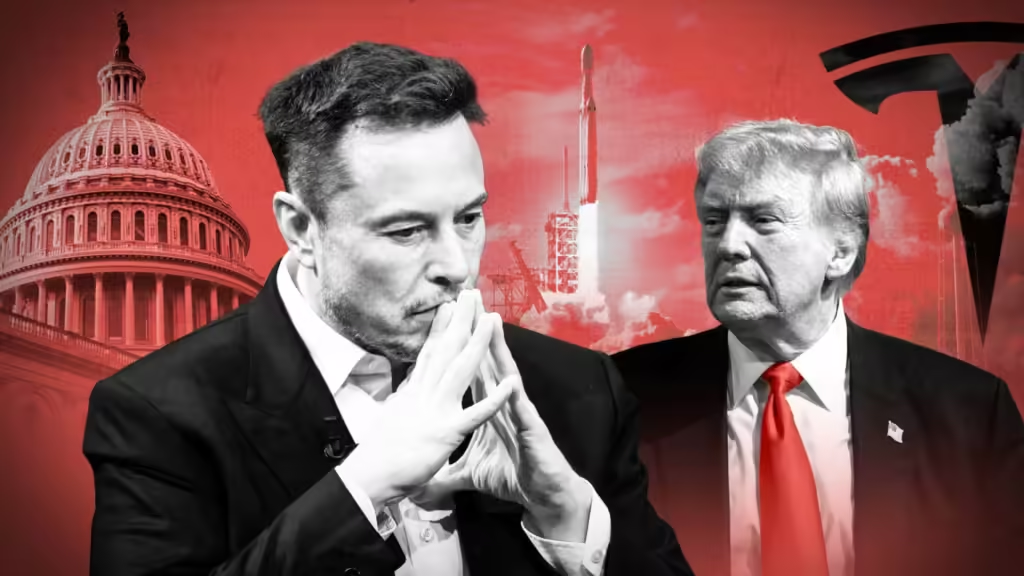Why Elon Musk Bet on Donald Trump ? – Truth Behind 2024 U.S. Presidential Election Result
(Feat. Harvard, Yale University, College Board, Jewish American, Anti-Semitic, Islam, Tesla, Space X, Wall Street Stock Financial Market, Glass Ceiling, Federal Reserve, and Deep State)

1. In 1900, around 7% of incoming Harvard students were Jewish.
2. By 1922, this had risen to 22% at Harvard and almost 40% at Columbia, marking a significant increase in Jewish enrollment at top schools.
3. In response, deans at Harvard, Yale, and Princeton discussed ways to lower Jewish admissions without overt discrimination.

4. A group called the College Board, comprised of colleges in the northeastern U.S., oversaw this effort.
5. Princeton’s eugenicist Carl Brigham created an exam with complex vocabulary and lengthy passages—a 240-question test to be completed in 67 minutes.
6. For Jewish immigrants who were less fluent in English, this exam was challenging, reducing their chances of high scores.
7. This test eventually became the modern SAT.

8. Some argue that the original exam had 315 questions and a 97-minute time limit.
9. However, only 240 questions counted towards the score, effectively leaving 67 minutes for those questions.
10. Dartmouth added another layer to admissions criteria.

11. They included subjective factors such as personality, athletic ability, and geographic diversity.
12. This allowed colleges to consider applicants’ personal traits, leadership, and socioeconomic backgrounds.
13. Other schools soon adopted similar subjective factors, like character, extracurriculars, and legacy status.
14. As these criteria gained influence, Jewish enrollment at Harvard dropped from 25% in 1925 to 12% by 1933.
15. Yale’s Jewish enrollment similarly decreased from 13% in 1927 to 8% in 1934.

16. Over time, Jewish students adapted, and the numbers eventually leveled out.
17. Today, Jewish Americans make up around 2% of the U.S. population, or about 7 million people.
18. However, they represent about 30% of Harvard and Wharton graduate students, and 25% of Ivy League grad students, surpassing previous records.
19. These graduates now excel in a range of fields across the country.
20. Jewish Americans have also been influential within the Federal Reserve.
21. For 40 years, from Paul Volcker to Janet Yellen, the Fed was chaired exclusively by Jewish leaders.
22. Jerome Powell became the first non-Jewish Fed Chair in four decades.

23. Powell’s background has occasionally raised concerns about his connection with Treasury Secretary Yellen and major Wall Street figures, who are predominantly Jewish.
24. Jewish Americans continue to hold significant influence in finance.
25. Just as there’s a “glass ceiling” for women, some allege a similar barrier for non-Jews on Wall Street.
26. Although people from various backgrounds can rise in finance, breaking into the very top ranks can be challenging for non-Jews.

27. Some feel that resentment toward Jewish influence among certain non-Jewish white communities has fueled anti-Semitic sentiments.
28. There’s a growing view among some white Americans that while they founded America, Jewish Americans now dominate top positions, creating resentment.
29. In finance, support for Palestine can result in informal penalties for employees.
30. Expressing pro-Palestine sentiments has become nearly taboo in American finance.
31. Amid the Israel conflict, anti-Semitic sentiment, once subtle, is now more openly expressed.
32. Against this backdrop, Elon Musk—a non-Jewish white public figure—has made remarks that resonate with some of these sentiments.
33. Musk responded to a user’s tweet stating, “The Jewish community needs to stop hating white people,” with, “You’re actually speaking the truth. I find the ADL’s message genuinely offensive.”

34. The ADL (Anti-Defamation League), a Jewish civil rights group, was founded in 1913.
35. ADL CEO Jonathan Greenblatt quickly responded, escalating the issue.
36. Greenblatt criticized Musk, saying, “Anti-Semitism is exploding across America, and for a public figure to fan those flames now is incredibly dangerous.”
37. Following Greenblatt’s criticism, companies like Apple and IBM paused their advertising on Musk’s platform, X.
38. It appears that influential Jewish groups are demonstrating their power in response to Musk.

39. Although Jewish Americans are only about 2% of the population, they largely support the Democratic Party and hold substantial influence through donations and lobbying.
40. In the last election, 75% of Jewish Americans supported Biden, which helped him in a close race.
41. Currently, there are 36 Jewish members of Congress.
42. Of these, 9 are in the Senate and 27 in the House, with all but one aligned with the Democratic Party.
43. Prominent Jewish figures like Bernie Sanders, along with media figures at CNN (Jake Tapper, Wolf Blitzer) and leading roles at the New York Times and Washington Post, are critics of Trump.
44. Trump’s son-in-law is Jewish, and Trump avoided anti-Semitic policies during his first term.
45. In fact, Trump moved the U.S. Embassy to Jerusalem and withdrew from the Iran nuclear deal, aligning with Israel’s interests.
46. Despite these moves, many Jewish Americans still oppose Trump, as Nobel laureate Paul Krugman summarized in a New York Times column.

47. Krugman argued that Trump’s association with white nationalism makes him a threat to Jewish Americans. (Basically, MAGA doesn’t align well with Jewish communities.)
48. Trump has said, “Jewish Americans don’t support me because I don’t take their money. They want to control politicians,” which Krugman describes as a white nationalist stance.
49. Nobel-winning economist Paul Krugman is himself Jewish.
50. The Jewish community’s strong support for the Democratic Party helps explain why the White House quickly condemned Musk’s remarks.

51. Anti-Semitic incidents, including shootings and nationalist protests, are on the rise in the U.S.
52. Unlike in the past, recent anti-Semitic protesters are not masking their identities.
53. This lack of concealment reflects a growing acceptance of anti-Jewish sentiment.
54. However, these protesters are generally not pro-Islam; many actually hold negative views of both Jews and Muslims.
55. These hardline conservatives, who are also anti-immigration and anti-Islam, make up much of Trump’s core base.
56. This wave of anti-Semitism among some white Americans may indicate a shift in public sentiment.
57. This shift is why Israel and Jewish communities in the U.S. are increasingly cautious and reactive to Musk’s statements.
58. After Trump’s recent incident, Musk publicly supported him, wishing him a swift recovery.

59. Musk’s support for Trump isn’t new—it’s been building for a while.
60. In fact, Musk made a sizable donation to Trump’s campaign on July 12, well before the incident.
61. Musk’s support for Trump likely isn’t rooted in personal views on Jewish Americans or ideology.
62. Musk is a businessman and a strategist. (yes, he is definitely a “genius”.)
63. His major investments in electric vehicles, robotics, and space exploration may benefit more under Trump’s policies than Biden’s.
64. He may also still be motivated by past regulatory issues with his platform, X.

Alphazen Insights

Musk’s all-in support for Trump is like betting the house on a high-stakes hand. Meanwhile, Apple’s yanking their ads from X and pouring 96% of their political dollars into backing Kamala Harris. Should be fun to watch how Trump plays his cards in response!

Discover more from Alphazen Dynamics
Subscribe to get the latest posts sent to your email.



